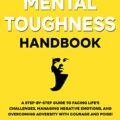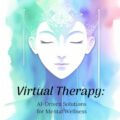Online mental health courses offer a flexible way to learn about mental health. They provide essential knowledge and skills.
Also Read
Mental health awareness is crucial in today’s fast-paced world. Online courses can help you gain valuable insights and practical techniques. These courses cover various topics such as stress management, anxiety, depression, and self-care strategies. They are designed to be accessible and easy to follow, making them suitable for everyone.
You can learn at your own pace, fitting the courses into your busy schedule. Online mental health courses often include interactive elements, such as quizzes and discussion forums, to enhance your learning experience. By enrolling in these courses, you can improve your mental well-being and support others.
Buying Guide On Online Mental Health Courses
buying guide for online mental health courses
1. Identify your learning goals
think about your main objectives. Do you want to learn basic mental health concepts? or, are you looking for advanced clinical skills? knowing your goals helps narrow down options.
2. Research course content
examine the curriculum. Ensure it covers topics you’re interested in. Look for courses that offer a comprehensive overview. Some may focus on specific areas like anxiety or depression.
3. Check instructor credentials
review the instructor’s background. Look for professionals with experience in mental health. Credentials and past work matter. Good instructors make a big difference.
4. Read student reviews
see what past students say. Reviews provide insight into course quality. Positive feedback is a good sign. Negative reviews highlight potential issues.
5. Assess certification and accreditation
check if the course offers a certificate. Accredited courses add value. Certificates can help in your career. Ensure the course is recognized by relevant organizations.
6. Evaluate course format
decide if you prefer live or recorded sessions. Live sessions offer real-time interaction. Recorded ones offer flexibility. Choose based on your schedule.
7. Consider course duration
look at how long the course lasts. Some are short and intensive. Others span several weeks or months. Pick a duration that fits your availability.
8. Compare pricing
check the cost. Compare it with other courses. More expensive doesn’t always mean better. Look for value rather than price alone.
9. Look for additional resources
see if the course includes extra materials. E-books, articles, and quizzes enhance learning. Extra resources add depth to the course content.
10. Verify technical requirements
ensure you have the necessary technology. Stable internet, a computer, and software are often required. Check if the course platform is user-friendly.
11. Explore support options
check if the course offers student support. Mentorship and discussion forums help. Good support enhances your learning experience.
12. Take a trial or sample class
see if a free trial is available. Sample classes give a taste of the course. They help you decide if it’s the right fit.
Conclusion
Online mental health courses offer a great way to learn about mental health. They are flexible and accessible. These courses can fit into your schedule. You can learn from home at your own pace. This makes it easier to gain new knowledge without stress.
These courses also provide valuable skills. Skills that help you understand and manage your mental health better. They can also help you support others. Investing in mental health education can improve your life. It can also help create a more understanding and supportive community.
Online courses make this education available to many people. This is important in a world where mental health is a growing concern. So, consider enrolling in an online mental health course. It could be a positive step for you and those around you.























